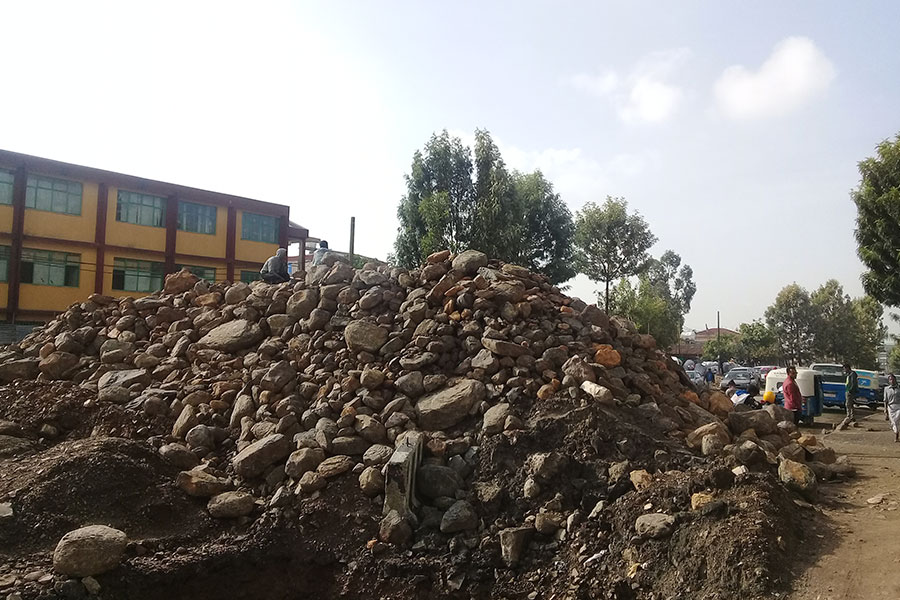
Fortune News | Apr 26,2019
May 13 , 2023
By MUNIR SHEMSU ( FORTUNE STAFF WRITER )
A contract farming regulation that sets up four types of agreements between contractor and producer was ratified by Parliamentarians last week, along with a wave of reforms to seed variety ownership and use.
The new law states all contracts will need to be in writing and include the type of agricultural produce, pricing mechanism for both input and produce, size of the production site and set the quantity and units of measurement along with customary requirements of other contractual standards.
Contract farming will occur in out-grower, centralised, multipartite and intermediary modalities, while the number of parties and how the production takes place differs depending on the type of contract.
Experts hope the decision is expected to reform the agricultural sector dealing with production issues that the previous law failed to address.
A comprehensive legal framework has not existed despite beer companies such as Heinkien having already employed some form of contract farming modalities to source malt from local farmers.
Taye Taddesse (PhD), a researcher and scientist in the agricultural sector for over two decades, underscored the necessity of creating awareness for farmers, recalling that informal agreements have been subject to default by both parties.
He observes that creating a legal framework around contractual farming is integral to increasing yield for farmers and the country.
"Capital investment risk needs to be hedged by a predictable legal framework," Taye told Fortune.
Despite averaging a GDP growth rate of around 8.9pc for the last 11 years, Ethiopia's agricultural sector has only had a 5.4pc growth rate. According to data from Ethiopian Statistical Services, Teff, Maize, Barley and Wheat account for nearly three fourth of crop production in the country.
A study by Yifru Tafesse in March of last year indicated that the agricultural sector is challenged by the limitation of mechanization, declining soil fertility, increasing diseases and absence of robust policies.
The seed policy, which also got unanimous approval from the Parliament last week, prohibits supplying seed to local or foreign markets without receiving a certification assuring its quality from the Ethiopian Agricultural Authority (EAA).
The Authority was established two years ago to register varieties after they pass a Distinctiveness, Uniformity and Stability (DUS) standard report and fulfilment of biodiversity and quarantine requirements.
The law ushers in a provision that allows the production of foreign registered varieties with particular national interests without undergoing an adaptation trial.
Esayas Lemma, crop development head at the Ministry of Agriculture, says a series of directives and regulations are in the works to warrant breeder rights further. He observes how unregulated replication of seed variety has been off-putting to multinational corporations.
"It’ll boost attention from foreign investors," he told Fortune.
Esayas indicated that the 10-year agricultural strategy of the country entails the entrance of foreign direct investment, which cannot occur without secured seed ownership rights. He believes access to grants will also be expanded by adopting the seed policy, with development partners abstaining from lending a hand if the relevant policy is not placed.
Acknowledging the absence of a prior regulatory framework to govern contract farming, he cautioned that farmers should not be expected to meet all stipulations of contracts without assistance from stakeholders.
"Capacity building is paramount for farmers to meet their contractual obligations," he said.
Ethiopia's economic fate is intimately tied to its agricultural horizon as the largest contributor to exports at around 80pc, accounting for half of the GDP.
Adopting commercial seeds in combination with best practices on a quarter of the current crop area, research on Ethiopia from the International Food Policy Research Institute (IFPRI) indicates that farmers could increase maize production by over 60pc and self-pollinated crop production such as Wheat by over 30pc. This corresponds to a production increase of over seven million tons per year.
The researcher, Taye, says a farmer buys tomato seeds at 15 Br per piece while receiving much below his aggregate demand. While he recognized that caution regarding how much genetically modified technology enters Agroecology is warranted, he believes it is a better option.
"There are better varieties out there," he told Fortune.
The researcher introduced gene-edited varieties of Teff called Kuncho and Kora, partnering with the Agricultural Research Institute, which had decreased lodging but stiff straws that failed to satisfy farmers' specifications.
The US-based Donald Danforth Plant Science Centre (DDPSC) received approval from the US Department of Agriculture (USDA) for a gene-edited dwarf version of Teff last month, claiming that it raised yield by up to 25pc.
Taye is not opposed to this kind of innovation as long as the development of the country's technical inspection capacities parallelly grows. Adaptation of biotechnology to the specific ecology of the country was indicated as necessary by the researcher, with different countries having different standards.
He compared the US policy that applies more lenient oversight to gene editing with the European Union that treats the technology as a subset of genetic modification.
PUBLISHED ON
May 13,2023 [ VOL
24 , NO
1202]

Fortune News | Apr 26,2019

Commentaries | Oct 03,2020

Radar | Oct 07,2023

Fortune News | Sep 02,2023

Radar | Mar 26,2022

Commentaries | Mar 12,2022

Radar | May 12,2024

Commentaries | Sep 10,2022

Radar | Dec 15,2024

Fortune News | Nov 13,2021

Dec 22 , 2024 . By TIZITA SHEWAFERAW
Charged with transforming colossal state-owned enterprises into modern and competitiv...

Aug 18 , 2024 . By AKSAH ITALO
Although predictable Yonas Zerihun's job in the ride-hailing service is not immune to...

Jul 28 , 2024 . By TIZITA SHEWAFERAW
Unhabitual, perhaps too many, Samuel Gebreyohannes, 38, used to occasionally enjoy a couple of beers at breakfast. However, he recently swit...

Jul 13 , 2024 . By AKSAH ITALO
Investors who rely on tractors, trucks, and field vehicles for commuting, transporting commodities, and f...

Nov 1 , 2025
The National Bank of Ethiopia (NBE) issued a statement two weeks ago that appeared to...

Oct 25 , 2025
The regulatory machinery is on overdrive. In only two years, no fewer than 35 new pro...

Oct 18 , 2025
The political establishment, notably the ruling party and its top brass, has become p...

Oct 11 , 2025
Ladislas Farago, a roving Associated Press (AP) correspondent, arrived in Ethiopia in...